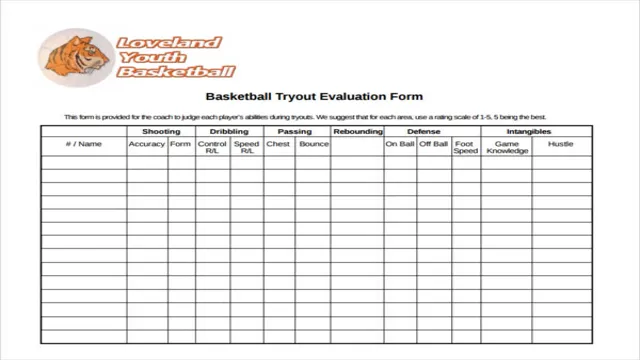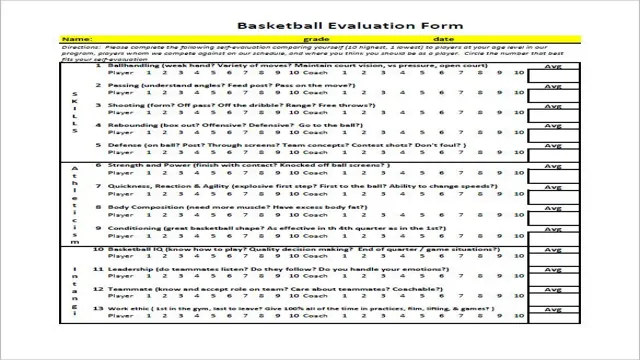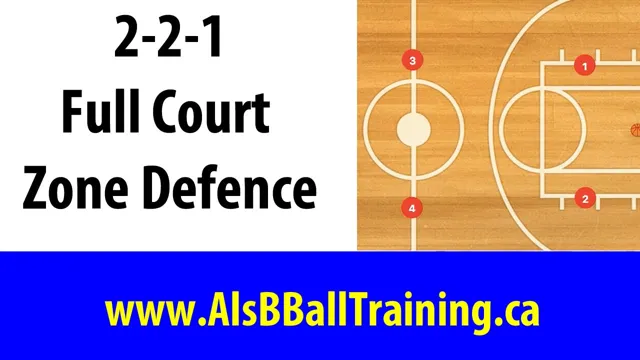Whether you’re new to basketball or a seasoned player, assessing your skills is a crucial step towards becoming a better player. The ability to evaluate your own performance allows you to identify areas that need improvement and track your progress over time. However, knowing what to look for can be challenging.
What skills should you prioritize? What drills should you focus on? In this blog, we’ll give you tips and techniques on how to evaluate your basketball skills effectively. From shooting and dribbling to defense and teamwork, we’ll cover all the key areas that make a well-rounded player. We’ll also provide you with a comprehensive checklist to help you track your progress and set goals for improvement.
Whether you’re hoping to make the varsity team or just looking to impress your friends on the court, this blog will give you the tools you need to take your game to the next level. So let’s get started and see how you can assess your basketball skills like a pro!
Why Assess Your Basketball Skills?
Assessing your basketball skills is a crucial step in taking your game to the next level. Whether you are an aspiring athlete or a seasoned pro, a basketball assessment can help identify areas of strengths and weakness, and ultimately improve your overall performance. By evaluating your dribbling, shooting, passing, defensive, and rebounding skills, you can gain a deeper understanding of your strengths and challenges, and develop a personalized training program to achieve your basketball goals.
A basketball assessment can also serve as an accountability tool to track your progress and measure your improvements over time. Don’t underestimate the power of assessing your basketball skills – it can be the key to unlocking your full potential on the court.
Improving Your Game and Identifying Weaknesses
Assessing your basketball skills can significantly improve your game and help identify areas to focus on to take your playing to the next level. Everyone has strengths and weaknesses, and it’s essential to know both to become a well-rounded player and maximize your potential. By assessing your skills, you can determine what areas require improvement and what strengths you can leverage on the court.
Whether it’s your ball handling, shooting, defense, or rebounding, identifying these areas can help you develop a more targeted practice routine and set attainable goals to track your progress. Don’t be afraid to ask trusted coaches, teammates, or even record yourself to get an objective assessment of your skills. In summary, assessing your basketball skills is an essential step to take to enhance your game and reach your full potential on the court.

What to Assess?
Basketball assessment is a complex process that requires careful consideration of several factors to ensure accurate evaluation. One of the most critical aspects is physical assessment, which involves measuring height, weight, and body fat percentage. This information provides crucial data on a player’s physical abilities and plays a key role in identifying potential health or injury concerns.
In addition to physical assessment, basketball coaches must also evaluate their players’ basketball IQ, technical skills, and strategic understanding of the game. These include measuring a player’s shooting accuracy, dribbling skills, agility, and strength. Furthermore, coaches must also evaluate the mental and emotional aspects of their players, such as their dedication, sportsmanship, and ability to work within a team.
Overall, basketball assessment requires a comprehensive evaluation of various factors, enabling coaches to create a well-rounded team that can excel in all aspects of the game.
Physical and Technical Skills
When it comes to assessing physical and technical skills, there are several key factors to consider. Physical skills refer to the athlete’s physical abilities, such as strength, agility, and endurance. Meanwhile, technical skills encompass the athlete’s technical proficiency in their sport, including their technique, tactical knowledge, and decision-making skills.
To properly assess an athlete’s physical and technical skills, coaches typically use a variety of tests and drills to measure their performance in areas such as speed, power, and accuracy. Depending on the sport, coaches may also pay close attention to specific skills, such as footwork in soccer or shooting accuracy in basketball. It’s crucial to keep in mind that physical and technical skills are interconnected, meaning that improvements in one area can often lead to improvements in the other.
By regularly assessing an athlete’s skills, coaches can identify areas for improvement and tailor their training to help the athlete reach their full potential.
Mental and Emotional Traits
When assessing mental and emotional traits, it is important to consider various factors such as personality, behavior patterns, thought processes, and coping mechanisms. Personality traits like introversion or extroversion, openness, agreeableness, conscientiousness, and neuroticism can impact how an individual responds to stress, their level of resilience, and overall emotional well-being. Moreover, observing behavior patterns helps in understanding how an individual interacts with others, how they regulate their emotions, and how they cope during stressful situations.
Examining thought processes and coping mechanisms provides greater insight into how an individual cognitively functions, deals with anxiety or depression, and manages their inner conflicts. By assessing multiple mental and emotional enablers, it becomes easier to identify underlying issues and tailor interventions that can help individuals in achieving optimal emotional and psychological health.
How to Assess Your Basketball Skills?
Ready to assess your basketball skills? Here are some tips to get started! Firstly, it’s important to break down your skills into specific categories such as shooting, dribbling, defense, and teamwork. Then, practice each skill individually and record your progress over time. Additionally, consider asking a coach or experienced player to watch and assess your skills, providing valuable feedback on areas for improvement.
Another useful tool is to participate in online basketball assessments, which can give you a comprehensive evaluation of your skills and provide personalized drills and exercises to enhance them. Lastly, it’s important to remember that assessments are not meant to discourage you, but to help you recognize your strengths and weaknesses and work towards becoming a better player. By continually assessing and improving your skills, you’ll be well on your way to becoming a skilled basketball player.
So take that first step, pick up a basketball, and start assessing your skills!
Self-Evaluation and Tracking Progress
Assessing your basketball skills is an essential part of tracking your progress and improving your game. There are several ways to evaluate yourself, such as analyzing game footage, practicing specific drills, and working with a coach or mentor. One effective method is to create a skills checklist, which can help you identify areas that need improvement and track your progress over time.
List all the skills required to be a successful basketball player, such as shooting, dribbling, passing, and rebounding. Then rate yourself on a scale of 1-10 for each skill and set goals to improve in those areas. Another useful tool is a shot chart, which helps you visualize your shooting performance and identify patterns or areas for improvement.
By assessing your skills regularly and tracking your progress, you can set achievable goals and take actionable steps to become a better player.
Working with a Coach or Trainer
Assessing your basketball skills can be quite challenging if you aren’t sure where to start. However, working with a coach or a trainer can significantly help in evaluating your abilities accurately. Your coach or trainer can pinpoint your strengths and weaknesses and provide you with personalized feedback on how to improve.
One way to assess your skills is by participating in drills that cover all aspects of basketball, including dribbling, passing, shooting, rebounding, and defense. Through these drills, your coach can assess your technique and form while providing constructive feedback on areas for improvement. Moreover, watching game footage and analyzing your performance can also help in identifying your strengths and weaknesses.
As you work on your skills, remember that practice is vital to improving your overall game. By working with a coach or trainer, you can assess your basketball skills effectively and take the necessary steps to reach your full potential.
Basketball Assessment Tools
Basketball assessment is an integral part of player development and improvement in the sport of basketball. There are several assessment tools available that coaches and trainers can use to evaluate players’ skills and performance. Some common basketball assessment tools include shooting drills, dribbling exercises, game simulations, and physical fitness tests.
These tools help coaches identify the strengths and weaknesses of their players and develop targeted training programs that address specific areas of improvement. For example, a coach may use shooting drills to assess a player’s shooting ability and accuracy, while physical fitness tests can help identify areas where a player needs to improve their strength and endurance. Overall, basketball assessment tools play a critical role in helping players develop their skills and reach their full potential on the court.
Measuring Performance with Metrics and Stats
Basketball assessment tools are crucial for anyone looking to improve their performance on the court. With the help of metrics and stats, players and coaches can analyze various aspects of the game such as shooting accuracy, rebounding, turnovers, and defense. Some popular basketball assessment tools include the shooting machine, rebounding machine, and the dribble stick.
These tools simulate game-like scenarios to help players improve their skills and work on their weaknesses. They also provide valuable data such as shot percentage and rebounding rate, which can be used to track progress over time and set goals for improvement. By using basketball assessment tools and analyzing metrics and stats, players and coaches can gain a deeper understanding of their performance and make informed decisions on how to achieve their goals on the court.
Using Video Analysis to Identify Areas for Improvement
Video analysis has become an essential tool for basketball coaches to identify areas of improvement for their players. Understanding the strengths and weaknesses of their players can help the coaches create better training plans tailored to each player’s needs. By breaking down game footage and assessing player performance using basketball assessment tools, coaches can gain valuable insights into aspects like shot selection, defense, and footwork.
These tools help coaches to monitor and evaluate player progress over time and make informed decisions on team strategies before games. There are different types of basketball assessment tools that coaches can use. One such method is through shot analysis, which gives coaches video evidence of a player’s shooting mechanics, trajectory, release point, and accuracy.
Footwork analysis helps coaches understand the player’s footwork and movement patterns and highlights the areas that may need improvement. Another tool is the player evaluation software, which simplifies the analysis process and offers coaches a data-driven approach to player assessment. In conclusion, video analysis is an effective way to improve basketball player’s performance.
With the use of basketball assessment tools, coaches can easily identify player weaknesses, personalize player training, and make informed game-day decisions. It’s a valuable investment for coaches and players alike and can take a team to the next level.
Next Steps: Putting Your Assessment into Action
Now that you’ve completed your basketball assessment, it’s time to put your results into action. First, review your strengths and areas for improvement. Do you excel at shooting but need to work on agility and defense? Use this information to create a tailored workout plan that focuses on your weaknesses.
Incorporate drills and exercises that target those areas so you can improve. Additionally, seek out opportunities to play against opponents who challenge you in areas where you need to improve. This will help you refine your skills and become a more well-rounded player.
Remember that practice makes perfect and consistent effort is key to making progress. By using your basketball assessment as a guide, you can focus your training and reach your full potential on the court.
Conclusion
After careful evaluation, it is clear that basketball is not just a game of physical strength and skill, but also strategic thinking and teamwork. The court serves as a canvas for artful maneuvers and expert coordination, as players navigate with finesse towards the ultimate goal of scoring. From layups to three-point shots, each move is a calculated risk that requires split-second decision making.
However, as with any sport, basketball is not without flaws, and often drives heated debates amongst fans and players alike. Regardless of the arguments and controversies, one thing remains certain: basketball is a dynamic, thrilling and endlessly entertaining game that keeps our hearts racing and our spirits soaring. In short, basketball is poetry in motion, a reflection of human excellence and a celebration of the beauty of the game.
“
FAQs
What is a basketball assessment?
A basketball assessment is an evaluation tool used to measure a player’s skills and abilities in the game of basketball.
Who typically conducts a basketball assessment?
A basketball assessment can be conducted by coaches, scouts, or trainers.
What types of skills are evaluated in a basketball assessment?
A basketball assessment typically evaluates a player’s shooting, dribbling, passing, defense, athleticism, and teamwork.
How long does a basketball assessment typically take?
The length of a basketball assessment can vary depending on the specific evaluation being conducted but usually, it takes anywhere from 30 minutes to 2 hours.
What is the purpose of a basketball assessment?
The purpose of a basketball assessment is to identify a player’s strengths and weaknesses, and to help them improve their overall game. It also helps coaches and scouts to determine a player’s potential for future development and growth.


